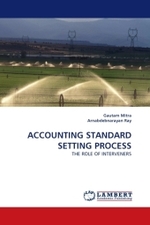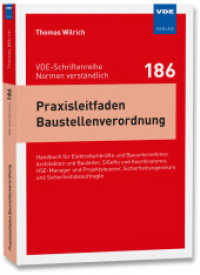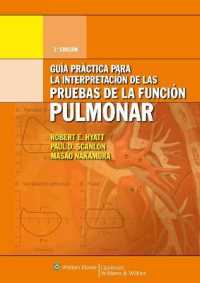Full Description
The Septuagint, the Greek translation of the Hebrew Bible created by Jews seeking a place of legitimacy for diaspora Jewishness and faith among the traditions of Hellenistic culture, was a monumental religious and cultural achievement.
This Greek Old Testament, in its original form and revised versions, provided the scriptural basis for Judaism in the Greek-speaking diaspora, enabled the emergence and spread of Christianity, and influenced translations of the Bible into African and European languages. Over time, however, the Septuagint's relevance faded for Jews, and the Hebrew text eventually reasserted its dominance within Judaism. This led many to neglect the Septuagint as an authentic witness to the biblical tradition. But the Septuagint remained important, inspiring biblical writings and further translations into Latin, Coptic, and Armenian. In combination with the Qumran biblical texts, it provides yet further indication of the multivocal state of the Hebrew Bible around the turn of the eras and proves to be a text of continuous interest for biblical scholarship and cultural-historical studies.
Siegfried Kreuzer's Introduction to the Septuagint presents, in English, the most extensive introduction of the Septuagint to date. It offers comprehensive overviews of the individual biblical writings, including the history of research, current findings and problems, and perspectives for future research. Additionally, this survey presents a history of the Septuagint in its Greco-Hellenistic background, theories of its genesis, the history of its revisions, its lore in antiquity, and an overview of the most important manuscripts and witnesses of the convoluted transmission history of the text. The text includes extensive bibliographies that show the ongoing interest in Septuagint studies and provide a reliable basis for future studies.
A collaboration representing multiple nationalities, professional perspectives, and denominational traditions, this dependable guide invites newcomers and experts alike to venture into the rich world of one of the most influential works of literature in history.
Contents
Introduction
The Origins and Transmission of the Septuagint Siegfried Kreuzer
Overview of Textual Witnesses to the Septuagint Siegfried Kreuzer / Marcus Sigismund
1. Pentateuch
1.0. From the Torah to Nomos: Perspectives of Research on the Greek Pentateuch Martin R?Âsel
1.1. Genesis
Martina Kepper
1.2. Exodos/Exodus
Peter Schwagmeier
1.3. Levitikon/Leviticus
Martin Vahrenhorst
1.4. Arithmoi/Numeri/Numbers
Gilles Dorival
1.5. Deuteronomion/Deuteronomium/Deuteronomy
Melvin K. H. Peters
2. Historical Books
2.1. Jesus/Josue/Joshua
Cornelis G. den Hertog
2.2. Kritai/Iudices/Judges
Natalio Fernandez Marcos
2.3. Ruth
Eberhard Bons
2.4. The Books of Kingdoms/Reigns
2.4.1-2. Basileion I and II / 1-2 Kingdoms / 1-2 Samuel
Philippe Hugo
2.4.3. Basileion III / 3 Kingdoms / 1 Kings.
Martin Meiser
2.4.4. Basileion IV / 4 Kingdoms / 2 Kings
Julio Trebolle-Barreira
2.5. Paraleipomenon I and II / 1-2 Chronica / 1-2 Chronicles
Adrian Schenker
2.6.1. Esdras I / 1 Esdras / 3 Ezra
Dieter B?Âhler
2.6.2. Esdras II / 2 Esdras / Ezra-Nehemiah
Dieter B?Âhler
3. Later Historical Books and Narratives
3.1. Esther / The Book of Esther
Kristin De Troyer
3.2. Judith / The Book of Judith
Helmut Engel
3.3. Tobit / The Book of Tobit / Tobias
Katrin Hauspie
3.4. The Books of the Maccabees
3.4.1. Makkabaion I / 1 Maccabees
Michael Tilly
3.4.2. Makkabaion II / 2 Maccabees
Tobias Nicklas
3.4.3. Makkabaion III / 3 Maccabees
Wolfgang Orth
3.4.4. Makkabaion IV / 4 Maccabees
Robert J. V. Hiebert
4. Psalms and Odes
4.1. Psalmoi / The Book of Psalms
Eberhard Bons / Ralph Brucker
4.2. Odai / Odai / The Book of Odes
Ioan Chiril?â / Siegfried Kreuzer
4.3. Psalmoi Solomontos / Psalms of Solomon
Felix Albrecht
5. Wisdom Books
5.1. Paroimiai / Proverbia / Proverbs of Solomon
Hans-Winfried J??ngling
5.2. Ekklesiastes / Qohelet / Ecclesiastes
Peter J. Gentry with Yun-Yeong Yi
5.3. Asma / Canticum Canticorum / Song of Songs
Eva Schulz-Fl??gel
5.4. Job
Markus Witte
5.5. Sophia Solomonos / Sapientia Salomonis / Wisdom of Solomon
Helmut Engel
5.6. Sophia Sirach / Ekklesiasticus / The Wisdom of Jesus Son of Sirach
Frank Ueberschaer
6. Prophetic Books
6.1. Dodekapropheton / The Twelve Prophets
6.1.0. Dodekapropheton / The Twelve Prophets: An Overview
C?®cile Dogniez
6.1.1. Osee/Hosea
Jan Joosten
6.1.2. Amos
Eberhard Bons
6.1.3. Michaias/Michaeas/Micah
C?®cile Dogniez / Jan Joosten
6.1.4. Joel
C?®cile Dogniez
6.1.5. Abdiu/Abdias/Obadiah
C?®cile Dogniez
6.1.6. Jonas/Jonah
C?®cile Dogniez
6.1.7. Naoum/Nahum
Heinz-Josef Fabry
6.1.8. Ambakoum/Habacuc/Habakkuk
Heinz-Josef Fabry
6.1.9. Sophonias/Zephaniah
Jong-Hoon Kim
6.1.10. Aggaios/Aggaeus/Haggai
Thomas Pola
6.1.11. Zacharias/Zechariah
Thomas Pola
6.1.12. Malachias/Malachi
C?®cile Dogniez
6.2. Esaias/Isaias/Isaiah
Arie van der Kooij
6.3. Jeremiah Writings
6.3.1. Jeremias/Ieremias/Jeremiah
Pierre-Maurice Bogaert
6.3.2. Baruch
Pierre-Maurice Bogaert
6.3.3. Threnoi/Lamentationes/Lamentations
Frank Ueberschaer
6.3.4. Epistole Jeremiou / Epistola Ieremiae / Epistle of Jeremiah
Benjamin Wright
6.4. Iezekiel/Ezechiel/Ezekiel
Johan Lust
6.5. Daniel Writings
6.5.1. Daniel
Marco Settembrini
6.5.2. Sousanna/Susanna/Susannah
Heinz-Dieter Neef
6.5.3. Bel kai Drakon / Bel et Draco / Bel and the Dragon
Heinz-Dieter Neef
7. The Septuagint and the New Testament
7.1. The Septuagint Text in Early Christianity
Martin Karrer
7.2. The Significance of Septuagint Quotations in the New Testament against the Background of Old Testament Textual History
Wolfgang Kraus







